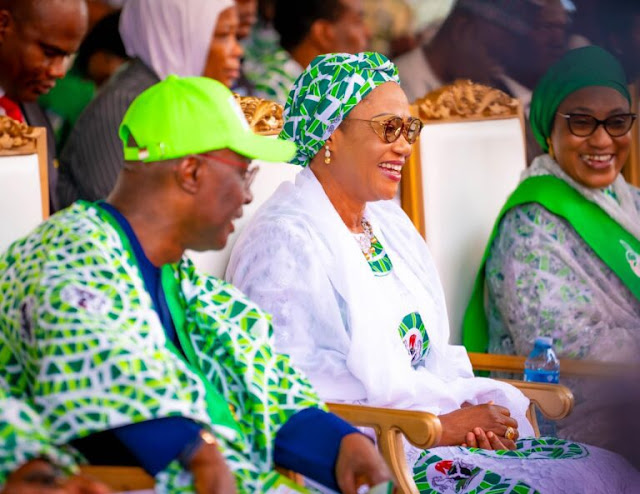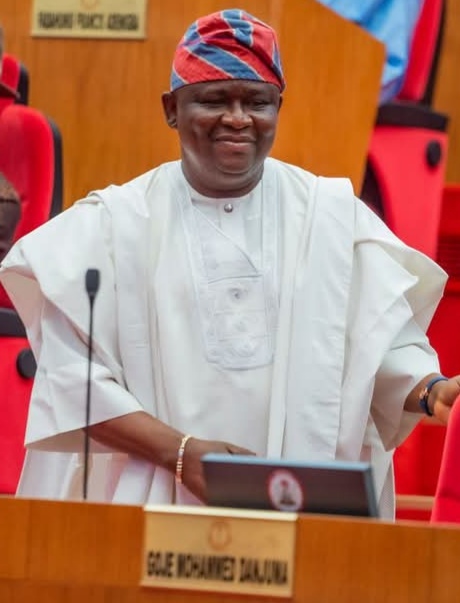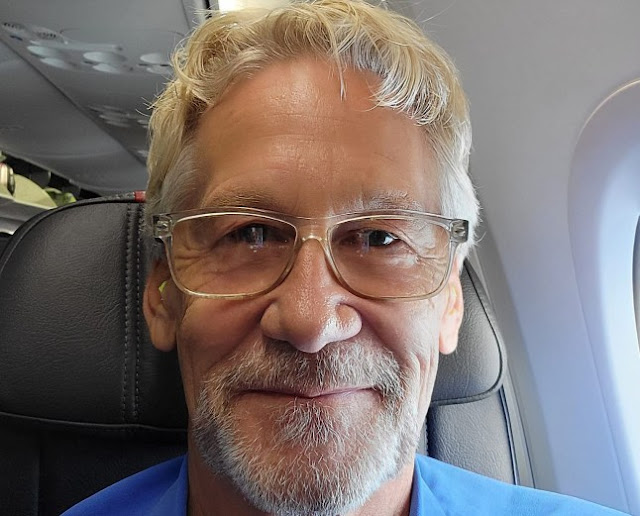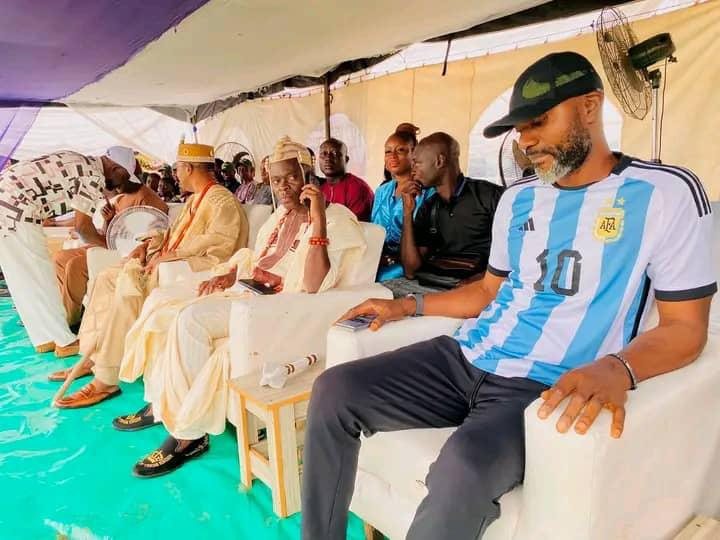On Saturday, in a vibrant and impactful event held at the Lagos House, Ikeja, Nigeria’s First Lady and Chairman of the Renewed Hope Initiative (RHI), Senator Oluremi Tinubu, reaffirmed her unwavering commitment to women’s empowerment and enterprise development. The occasion, themed “Empowering Women for Self-Reliance and SDGs Acceleration,” saw the distribution of empowerment tools to 1,000 women and Persons with Disabilities (PWDs) in Lagos State. Organized by the Office of the Senior Special Assistant to the President on Sustainable Development Goals (SDGs), Princess Adejoke Orelope-Adefulire, the event marked a significant milestone in the Renewed Hope Initiative’s mission to foster economic independence, gender equality, and inclusive development across Nigeria. This initiative, which doubled the number of beneficiaries in Lagos compared to other states, underscores a bold vision to transform lives and accelerate progress toward the United Nations’ Sustainable Development Goals (SDGs).
The event was more than a ceremonial distribution of tools; it was a powerful statement of intent, reflecting the Federal Government’s commitment to empowering women as key drivers of national development. With the support of Lagos State Governor Babajide Sanwo-Olu, who contributed an additional 500 empowerment items, the initiative provided tangible resources to women and PWDs, equipping them to build sustainable businesses and contribute to the economic prosperity of their communities. The event also highlighted the collaborative efforts of government, traditional leaders, and civil society in creating opportunities for marginalized groups, aligning with President Bola Tinubu’s Renewed Hope Agenda.
A Vision for Empowerment: Senator Tinubu’s Call to Action
In her address to the beneficiaries, Senator Oluremi Tinubu articulated a vision of empowerment that transcends mere material support. She emphasized that the tools distributed—ranging from gas cookers and grinding machines to chest freezers, generators, and hair dryers—were designed to serve as catalysts for economic independence. “The items being distributed today are to equip our women with the tools and resources they need to build successful enterprises and contribute to the prosperity of our great nation,” she declared. Her words resonated with the audience, many of whom were women eager to transform their lives and those of their families through entrepreneurship.
Senator Tinubu urged the beneficiaries to use the resources responsibly, viewing them as a foundation for creating a better future. “Let these items serve as a foundation for creating a better life for yourselves and your families,” she said. “I hope and pray that what you have received today will prosper in your hands.” Her message was both inspirational and practical, encouraging women to seize the opportunity to build sustainable businesses that would strengthen household incomes and contribute to Nigeria’s economic growth.
The First Lady’s remarks also underscored the critical role of women’s empowerment in achieving the SDGs, particularly SDG-5 (Gender Equality) and SDG-8 (Decent Work and Economic Growth). She highlighted how empowering women economically has a ripple effect, fostering inclusive development and reducing inequality across communities. By aligning the Renewed Hope Initiative with these global goals, Senator Tinubu positioned the programme as a strategic intervention to address systemic challenges such as poverty, gender disparities, and unemployment.
The Renewed Hope Initiative: A Nationwide Movement
The Renewed Hope Initiative, spearheaded by Senator Tinubu, is a flagship programme under President Bola Tinubu’s administration, aimed at promoting inclusivity, sustainable growth, and economic participation for all Nigerians. The Lagos event was a pivotal moment in the initiative’s rollout, as it marked the expansion of its reach to 18,500 women across Nigeria’s six geopolitical zones. By doubling the number of beneficiaries in Lagos to 1,000, the programme demonstrated its commitment to addressing the unique needs of Nigeria’s most populous state, where economic opportunities and challenges are particularly pronounced.
The tools distributed during the event were carefully selected to support a wide range of entrepreneurial activities. Gas cookers and grinding machines, for example, enable women to start or expand food-related businesses, such as catering or small-scale food processing. Chest freezers and generators provide the infrastructure needed for cold storage and reliable power, critical for businesses in a country where electricity supply remains erratic. Hair dryers cater to the growing beauty and salon industry, offering women a pathway to financial independence in a sector with high demand. These items, while seemingly modest, represent significant opportunities for women to generate income, support their families, and contribute to the local economy.
The initiative’s focus on Persons with Disabilities further underscores its commitment to inclusivity. By ensuring that PWDs are among the beneficiaries, the programme challenges societal barriers and promotes equal access to economic opportunities. This approach aligns with SDG-10 (Reduced Inequalities), which emphasizes the need to empower marginalized groups and ensure that no one is left behind in the pursuit of development.
Collaboration with Lagos State: A Model for Partnership
The success of the Lagos event was amplified by the active involvement of Governor Babajide Sanwo-Olu, who made a significant contribution by donating an additional 500 empowerment items. This gesture not only increased the number of beneficiaries but also highlighted the importance of collaboration between federal and state governments in addressing socio-economic challenges. Governor Sanwo-Olu’s support reflects a shared commitment to empowering women and fostering sustainable development in Lagos, a state that serves as Nigeria’s economic and cultural hub.
In his remarks, Governor Sanwo-Olu praised Senator Tinubu’s longstanding advocacy for women and good governance, noting that her work has been instrumental in shaping national policies. He described her as a trailblazer whose efforts have inspired countless women to pursue their dreams and contribute to society. “The First Lady’s commitment to women’s empowerment is not just a programme; it is a movement that is transforming lives across Nigeria,” he said.
The governor also issued a stern warning to beneficiaries against selling the empowerment tools, emphasizing that the items were intended to be used for productive purposes. “These tools are not for sale,” he cautioned. “They are an investment in your future and in the future of Lagos. Use them to create wealth, grow our economy, and build a better life for yourselves and your families.” His remarks underscored the transformative potential of the initiative, framing it as a deliberate effort to create opportunities and promote inclusion.
Governor Sanwo-Olu’s contribution and active participation in the event serve as a model for how state governments can complement federal initiatives. By aligning their efforts with the Renewed Hope Initiative, state leaders can amplify the impact of empowerment programmes and ensure that resources reach those who need them most. This partnership is particularly significant in Lagos, where the population density and economic diversity present both opportunities and challenges for development.
Aligning with the Sustainable Development Goals
The event’s theme, “Empowering Women for Self-Reliance and SDGs Acceleration,” reflects its alignment with the United Nations’ 2030 Agenda for Sustainable Development. Princess Adejoke Orelope-Adefulire, the Senior Special Assistant to the President on SDGs, emphasized that the programme supports multiple SDGs, including SDG-1 (No Poverty), SDG-2 (Zero Hunger), SDG-5 (Gender Equality), SDG-6 (Clean Water and Sanitation), and SDG-10 (Reduced Inequalities). She argued that financially empowered women have the potential to transform communities by creating jobs, improving food security, and reducing inequality.
“Empowering women is not just about giving them tools; it is about unlocking their potential to drive change,” Princess Orelope-Adefulire said. “When women are financially independent, they invest in their families, educate their children, and contribute to the development of their communities. This programme is a critical step toward achieving the SDGs and building a more inclusive Nigeria.”
The focus on women’s empowerment as a driver of sustainable development is particularly relevant in Nigeria, where gender disparities remain a significant challenge. Women make up nearly half of the country’s population, yet they face systemic barriers to education, employment, and economic participation. By providing women with the tools and resources to start businesses, the Renewed Hope Initiative is breaking down these barriers and creating pathways to economic independence.
A Gathering of Dignitaries: Unity in Purpose
The event was attended by a distinguished array of dignitaries, reflecting the broad support for Senator Tinubu’s vision. Among those present were the Wife of the Vice President, Mrs. Nana Shettima; the Wife of the Lagos State Governor, Dr. Ibijoke Sanwo-Olu; the Deputy Governor of Lagos State, Dr. Obafemi Hamzat, and his wife, Mrs. Oluremi Hamzat; the Wife of the Chief of Staff to the President, Mrs. Salamatu Gbajabiamila; and the Speaker of the Lagos State House of Assembly, Rt. Hon. Mudashiru Obasa. The presence of political, traditional, and religious leaders further underscored the event’s significance and the collective commitment to women’s empowerment.
The participation of these figures highlights the importance of unity in addressing Nigeria’s socio-economic challenges. By bringing together leaders from various sectors, the Renewed Hope Initiative fosters a collaborative approach to development, ensuring that efforts to empower women are supported at all levels of society. This unity is critical for sustaining the momentum of the initiative and ensuring that its impact is felt across the country.
The Broader Context: Women’s Empowerment in Nigeria
The Renewed Hope Initiative’s focus on women’s empowerment comes at a critical time in Nigeria’s history. Despite progress in recent decades, women continue to face significant challenges in achieving economic and social equality. According to the World Bank, women in Nigeria are less likely to participate in the formal labor market than men, with only 52% of women engaged in paid employment compared to 74% of men. Women are also disproportionately represented in the informal economy, where they often face precarious working conditions and limited access to resources.
These challenges are compounded by cultural and societal norms that restrict women’s access to education, finance, and decision-making roles. In rural areas, where access to opportunities is even more limited, women are often confined to subsistence agriculture or small-scale trading. The Renewed Hope Initiative seeks to address these disparities by providing women with the tools and resources they need to break into new sectors, such as food processing, retail, and beauty services.
The initiative also recognizes the intersectionality of gender and disability, ensuring that Persons with Disabilities are included in its empowerment efforts. This inclusive approach is particularly significant in a country where PWDs often face discrimination and exclusion from economic opportunities. By prioritizing their participation, the programme sets a precedent for inclusive development and challenges stereotypes about the capabilities of disabled individuals.
Economic Impact: Building a Stronger Nigeria
The distribution of empowerment tools to 1,000 women and PWDs in Lagos is expected to have a significant economic impact, both at the household and community levels. By equipping women with the means to start or expand businesses, the initiative creates opportunities for income generation, job creation, and economic growth. For example, a woman who receives a grinding machine can establish a food processing business, providing affordable services to her community while generating income for her family. Similarly, a hair dryer can enable a woman to start a salon, tapping into the growing demand for beauty services in urban and rural areas.
These micro-enterprises have a ripple effect, contributing to the broader economy by increasing local production, improving food security, and creating jobs. Women who are financially empowered are also more likely to invest in their children’s education and health, breaking the cycle of poverty and fostering long-term development. This aligns with the goals of the Renewed Hope Agenda, which emphasizes sustainable growth and inclusivity as key pillars of Nigeria’s development strategy.
In Lagos, where the economy is driven by a mix of formal and informal activities, the initiative’s impact is particularly significant. The state’s vibrant markets, entrepreneurial spirit, and diverse population make it an ideal testing ground for empowerment programmes. By supporting women and PWDs in Lagos, the Renewed Hope Initiative is contributing to the state’s economic dynamism and setting a model for other regions to follow.
Challenges and Opportunities
While the Renewed Hope Initiative is a commendable step toward women’s empowerment, it is not without challenges. Ensuring that beneficiaries use the tools effectively requires ongoing support, such as training in business management, financial literacy, and marketing. Without these complementary interventions, some women may struggle to maximize the potential of the resources they receive.
Additionally, the initiative must address the broader structural barriers that limit women’s economic participation, such as access to credit, land, and markets. Partnerships with financial institutions, microfinance organizations, and private sector actors can help bridge these gaps, providing women with the capital and networks they need to scale their businesses.
The initiative also faces the challenge of ensuring sustainability. While the distribution of tools is a critical first step, long-term success will depend on the government’s ability to monitor and evaluate the programme’s impact, address any gaps, and scale up successful interventions. This requires a robust monitoring and evaluation framework, as well as sustained political will to prioritize women’s empowerment.
Despite these challenges, the opportunities presented by the Renewed Hope Initiative are immense. By empowering women and PWDs, the programme is not only transforming individual lives but also contributing to Nigeria’s broader development goals. The initiative’s focus on self-reliance and SDGs acceleration positions it as a cornerstone of President Tinubu’s vision for a more inclusive and prosperous Nigeria.
A Call to Action: Building on the Momentum
The Lagos event is a powerful reminder of the transformative potential of women’s empowerment. However, its success will depend on the collective efforts of all stakeholders—government, civil society, private sector, and communities—to build on this momentum. Senator Tinubu’s call for responsible use of the empowerment tools is a challenge to beneficiaries to take ownership of their futures and contribute to Nigeria’s development.
For the government, the event is an opportunity to deepen its commitment to gender equality and inclusive development. This includes investing in complementary programmes, such as vocational training, access to finance, and market linkages, to ensure that women can fully capitalize on the opportunities provided by the initiative. It also requires addressing systemic barriers, such as discriminatory laws and practices, that continue to limit women’s economic participation.
For civil society and the private sector, the initiative offers a chance to partner with the government in creating a more inclusive economy. Non-governmental organizations can provide training and mentorship to beneficiaries, while businesses can offer market access and investment opportunities. By working together, these stakeholders can amplify the impact of the Renewed Hope Initiative and ensure that it reaches more women and PWDs across Nigeria.
A Vision for the Future
The distribution of empowerment tools to 1,000 women and PWDs in Lagos is a significant step toward a more equitable and prosperous Nigeria. Under the leadership of Senator Oluremi Tinubu, the Renewed Hope Initiative is setting a new standard for women’s empowerment, demonstrating that targeted interventions can have a transformative impact on individuals and communities.
As Nigeria looks to the future, the initiative serves as a blueprint for how to empower women and marginalized groups to drive sustainable development. By equipping women with the tools, resources, and opportunities they need to succeed, the programme is not only transforming lives but also laying the foundation for a stronger, more inclusive economy.
The event at Lagos House, Ikeja, was more than a distribution of tools; it was a celebration of hope, resilience, and the power of women to shape the future. With the support of leaders like Senator Tinubu, Governor Sanwo-Olu, and Princess Orelope-Adefulire, Nigeria is poised to unlock the full potential of its women and PWDs, creating a brighter future for all.





